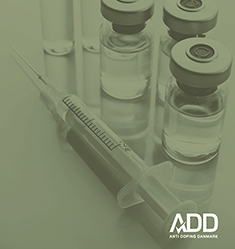PhD defence: Improving time- and cost-efficiency in doping analysis
An Industrial PhD project with Anti Doping Denmark
Sara Amalie Solheim
PhD thesis

Testosterone esters and clenbuterol are among the most frequently used doping substances in elite and recreational sports. Detection in urine and blood samples is limited by the costs of collection, transportation and analysis, and the rapid degradation of testosterone esters in blood.
This Industrial PhD thesis aimed to improve the cost-effectiveness of anti-doping testing through the evaluation of
- the applicability of a complementary sample collection matrix; dried blood spots (DBS) and
- whether the 'blood module' in the 'Athlete Biological Passport' (ABP) can be used to indicate testosterone doping and thereby improve detection, given the stimulating effect of testosterone on red blood cell production, and
- by providing concrete suggestions for the anti-doping testing program based on detection periods and performance-enhancing effects.
Download the entire thesis excl. articles.
2020, 154 pages.
Time
7 February 2020, 14:00
Place
Auditorium 1, August Krogh Building, Universitetsparken 13, DK-2100 Copenhagen
Opponents
Associate professor Thomas Elbenhardt Jensen (chair), Department of Nutrition, Exercise and Sports, University of Copenhagen, Denmark.
Head of Science and Testing Programmes Jenny Schulze, The Swedish National Anti-Doping Organisation, Sweden.
Professor Per Aagaard, University of Southern Denmark, Denmark.
Supervisor
Associate professor Nikolai Baastrup Nordsborg, Department of Nutrition, Exercise and Sports, University of Copenhagen, Denmark.
Co-supervisors
Scientific senior consultant, Dr. Jakob Sehested Mørkeberg, Anti Doping Denmark, Denmark.
Laboratory Director, Dr. Yvette Dehnes, Norwegian Doping Control Laboratory, Oslo University Hospital, Norway.
